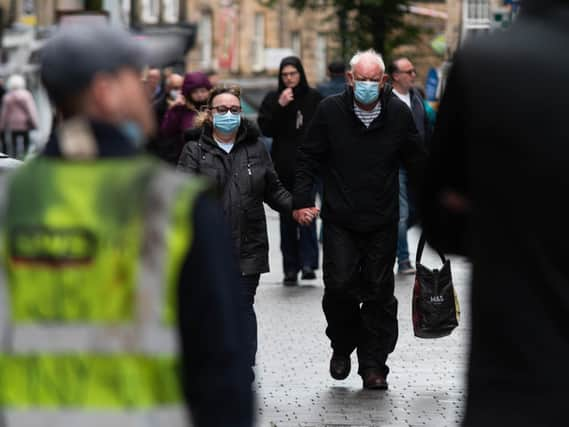Report finds Lancaster should be 'empowered further' to respond to future stages of Covid-19 crisis


Over six months of the pandemic, the Carnegie UK Trust - which seeks to improve the lives and wellbeing of people throughout the UK - had more than 80 conversations with people from 16 communities, including Lancaster, throughout the UK.
The conversations focused on how organisations and communities were adapting to meet the changing needs of the people around them, and the evolving relationships between the public sector, the voluntary community and social enterprise sector, and communities.
Advertisement
Hide AdAdvertisement
Hide AdThe report analyses the needs of communities such as Lancaster, including support with food, decreasing household income, mental health, and digital access; the impact of the pandemic on places; the community responses; and the role of volunteers and the local voluntary, community and social enterprise sector.
The trust also looks to the future, to new waves of the virus and future emergencies, and outlines the hopes and opportunities for future ways of working and how communities including Lancaster can be further empowered to respond.
The trust found:
*At the onset of the pandemic, it was communities who first stepped up to offer the vulnerable and isolated essential support.
*Communities were flexible in the support they offered, to a wide range of people and their individual needs.
Advertisement
Hide AdAdvertisement
Hide Ad*Working in partnership, the local council and community were able to meet people’s needs more effectively than offering stand-alone support.
*The response to the emergency showed the need for more local support and services, including staff skilled to support communities, flexible sources of funding, and recognising the value of the voluntary, community and social enterprise sector.
*Local authorities should learn from both the needs of communities and responses unveiled during the pandemic.
Launching the report, Sarah Davidson, chief executive of the Carnegie UK Trust, said: "The experience of Lancaster during the Covid-19 pandemic became clear through our conversations, and we heard how those in need were treated with kindness and dignity by their communities.
Advertisement
Hide AdAdvertisement
Hide Ad"We hope that Lancaster City Council and its partners will learn from this work about the needs of those who were vulnerable and isolated, as well as the flexible ways in which these needs were met, as we face the winter months ahead and future stages of the pandemic."
Coun Erica Lewis, leader of Lancaster City Council, said: "The response to Covid-19, and the establishment of the Community Hub, is a perfect example of how strong partnership working can benefit communities.
"It has been inspiring to see how the public sector, voluntary organisations and communities have worked together with the mutual aim of supporting residents in their hour of need.
"Thousands of people have stepped forward to volunteer and this has seen new connections and bonds of friendship being made across the district.
"We now need to ensure that we continue the conversation to ensure the hard work to build these stronger community ties continues beyond the pandemic."
Comment Guidelines
National World encourages reader discussion on our stories. User feedback, insights and back-and-forth exchanges add a rich layer of context to reporting. Please review our Community Guidelines before commenting.